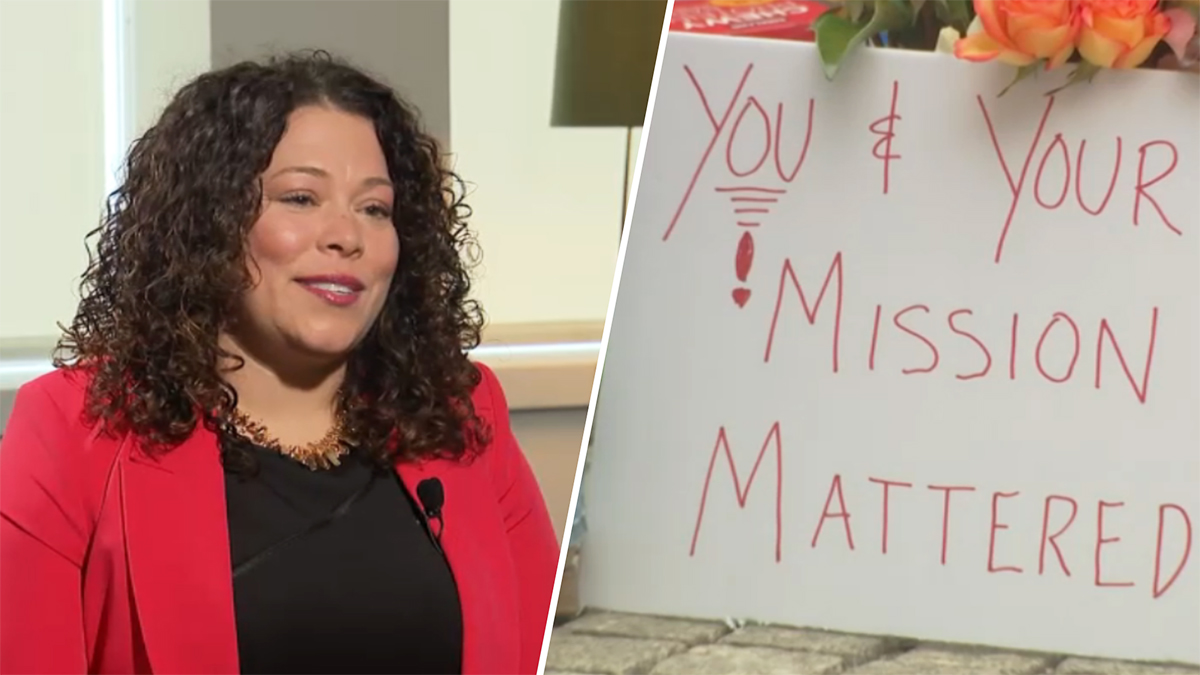Cope with Job Rejection: Boost Confidence and Land Your Dream Job!
Job Hunting Got You Down? Bounce Back Stronger!
Introduction: The Job Search Rollercoaster
Looking for a new job can feel like riding a never-ending rollercoaster. One minute you're soaring high with hope after a promising interview, and the next, you're plummeting into despair after receiving a rejection email – or even worse, complete silence. You pour your heart and soul into crafting the perfect resume and cover letter, only to feel like your efforts are vanishing into the digital abyss. It's enough to shake anyone's confidence. But don't worry; you're not alone! Millions of people worldwide navigate the challenging terrain of job searching every day. And just like you, they face rejection, doubt, and the frustrating feeling of being overlooked. This article will arm you with practical strategies to cope with the inevitable rejections, boost your self-esteem, and keep your spirits high as you continue your job search journey. Let's turn that rollercoaster into a smooth and empowering ride!
Why Rejection Hits So Hard
Rejection in job hunting often feels deeply personal, doesn't it? It's not just about your skills or experience; it's about your perceived worth. For many, like Dina Scippa, who dedicated years to international development projects with USAID, a sudden job loss feels like more than just losing a paycheck. It's a blow to their identity, their passion, and their sense of purpose. It can feel like a part of you has been ripped away.
Think of it like this: you're offering a piece of yourself – your time, your skills, your dedication – to a potential employer. When they reject you, it can feel like they're rejecting *you* as a person. This is especially true in times of economic uncertainty or organizational restructuring, where layoffs and hiring freezes are commonplace. But it's crucial to remember that rejection is rarely a reflection of your inherent value. More often than not, it's a matter of fit, budget constraints, or internal decisions that are beyond your control.
Understanding the Numbers Game
Let's face it: job hunting is a numbers game. You're going to get more "no's" than "yes's." Understanding this basic truth can significantly ease the sting of rejection. Treat your job search like a sales funnel. For every 100 applications, you might get 10 interviews, and from those 10 interviews, you might get one offer. The numbers will vary depending on your industry, experience level, and the current job market, but the principle remains the same: persistence is key.
Don't let the rejections deter you. Instead, view them as valuable data points that inform your strategy. Are you targeting the right types of roles? Is your resume effectively showcasing your skills and experience? Are you tailoring your cover letters to each specific job? Each rejection is an opportunity to learn and improve.
Harnessing the Power of Perspective
How you frame rejection can make all the difference. Instead of dwelling on the negative, try reframing it as a learning opportunity. Did you receive feedback during the interview process? Use it to identify areas where you can improve. Think of each rejection as a stepping stone, not a stumbling block.
Consider this: maybe that particular job wasn't the right fit for you. Perhaps there were aspects of the company culture or the role itself that wouldn't have aligned with your values or career goals. Sometimes, the universe has a way of steering you in the right direction, even if it doesn't feel like it at the time.
Self-Care Strategies for the Job Hunter
Job hunting can be incredibly stressful, so prioritizing self-care is crucial. Don't let the job search consume your entire life. Make time for activities that bring you joy and help you recharge. This could include:
- Exercise: Physical activity is a fantastic stress reliever and can boost your mood.
- Hobbies: Engage in activities you enjoy, whether it's painting, reading, playing music, or spending time in nature.
- Social Connection: Spend time with loved ones who support and uplift you.
- Mindfulness and Meditation: Practice mindfulness or meditation to calm your mind and reduce anxiety.
- Healthy Diet: Nourish your body with nutritious foods to maintain energy and focus.
Remember: you can't pour from an empty cup. Taking care of yourself is not selfish; it's essential for maintaining your well-being and sustaining your job search efforts.
Building a Strong Support System
Don't go it alone! Surround yourself with a supportive network of friends, family, mentors, or career coaches who can offer encouragement and guidance. Share your experiences, both the successes and the setbacks, with people you trust. A problem shared is a problem halved.
Consider joining a job search support group or online forum where you can connect with other job seekers, share tips and resources, and offer each other encouragement. Knowing that you're not alone in your struggles can be incredibly comforting and empowering.
Analyzing and Improving Your Approach
Are you getting the results you want? If not, it's time to take a critical look at your job search strategy. Ask yourself:
- Is my resume effectively showcasing my skills and experience?
- Am I targeting the right types of roles and companies?
- Are my cover letters tailored to each specific job?
- Am I networking effectively?
- Am I prepared for interviews?
Consider seeking feedback from a career coach or mentor on your resume, cover letter, and interview skills. An outside perspective can often reveal areas for improvement that you may have overlooked.
Reframing Your Resume
Your resume is your marketing document, so make sure it's selling you effectively. Highlight your accomplishments and quantify your results whenever possible. Use action verbs to describe your responsibilities and demonstrate the impact you've made in previous roles. Think of your resume as a highlight reel of your career achievements.
Tailor your resume to each specific job you're applying for, emphasizing the skills and experience that are most relevant to the role. Use keywords from the job description to ensure that your resume is easily searchable by applicant tracking systems (ATS).
Crafting Compelling Cover Letters
A well-written cover letter can set you apart from other candidates and demonstrate your enthusiasm for the role. Don't just regurgitate your resume; use your cover letter to tell a story about why you're a good fit for the company and the position. Showcase your personality and passion.
Address the hiring manager by name whenever possible. Research the company and tailor your cover letter to its specific values and mission. Explain why you're excited about the opportunity and how your skills and experience can contribute to the company's success.
Mastering the Art of Networking
Networking is a crucial aspect of job hunting. Attend industry events, connect with professionals on LinkedIn, and reach out to people in your network who can offer advice or introductions. Networking is about building relationships, not just asking for favors.
Informational interviews are a great way to learn more about different companies and industries and to expand your network. Reach out to people who work in fields that interest you and ask if they'd be willing to chat with you about their experiences. Be prepared with thoughtful questions and be sure to thank them for their time.
Ace Your Interviews: Preparation is Key
Preparation is essential for successful interviews. Research the company thoroughly, practice answering common interview questions, and prepare insightful questions to ask the interviewer. Confidence comes from preparation.
Practice your interviewing skills with a friend or family member. Record yourself answering interview questions and review the recording to identify areas where you can improve. Dress professionally and arrive on time (or even a few minutes early) for the interview.
Celebrating Small Victories
Job hunting can feel like a marathon, not a sprint, so it's important to celebrate small victories along the way. Did you update your resume? Did you network with someone new? Did you have a good interview? Acknowledge and celebrate these accomplishments to stay motivated. Positive reinforcement can go a long way.
Treat yourself to something special after reaching a milestone, such as submitting a certain number of applications or completing a particularly challenging interview. Celebrate your progress, no matter how small, to keep your spirits high.
Maintaining a Positive Mindset
Your mindset plays a crucial role in your job search success. Cultivate a positive attitude and believe in your abilities. Your self-belief is contagious. If you don't believe in yourself, how can you expect an employer to believe in you?
Surround yourself with positive influences and avoid negative self-talk. Practice gratitude and focus on the things you're grateful for in your life. Remember that your value is not defined by your job status.
Turning Rejection into Resilience
Rejection is an inevitable part of the job search process, but it doesn't have to define you. Learn to bounce back from setbacks and use them as fuel to propel you forward. Resilience is the key to success.
Remember that every "no" brings you closer to a "yes." Don't give up on your dreams. Keep learning, keep growing, and keep believing in yourself. Your perfect job is out there waiting for you.
Boosting Your Confidence: The Inside Job
Ultimately, boosting your confidence is an inside job. It's about recognizing your strengths, acknowledging your accomplishments, and believing in your potential. You are more capable than you think.
Focus on your past successes and remind yourself of the times you've overcome challenges. Write down a list of your skills and accomplishments to boost your self-esteem. Practice positive self-talk and affirm your worth. Remember that you have something valuable to offer the world.
Conclusion: The Journey Matters
The job search journey can be tough, filled with rejections and uncertainty. However, by understanding why rejection feels so personal, reframing your perspective, prioritizing self-care, building a strong support system, and continuously improving your approach, you can not only cope with rejection but also boost your confidence and ultimately find the job you deserve. Remember that the journey itself is valuable. You're learning, growing, and becoming more resilient with each step you take. Keep your head up, stay positive, and believe in yourself. Your success is on the horizon!
Frequently Asked Questions
Here are some frequently asked questions about coping with rejection and boosting confidence during a job search:
-
How do I avoid taking job rejection personally?
Remember that hiring decisions are often based on factors beyond your control, such as budget constraints or internal company politics. Focus on what you *can* control: your resume, cover letter, interview skills, and networking efforts. Treat each rejection as a learning opportunity, not a personal attack.
-
What can I do to stay motivated when I'm facing constant rejection?
Set realistic goals, celebrate small victories, and focus on the progress you're making. Surround yourself with a supportive network of friends, family, or mentors who can offer encouragement and guidance. Remember why you started your job search in the first place and visualize your success.
-
How can I improve my resume to get more interviews?
Tailor your resume to each specific job you're applying for, emphasizing the skills and experience that are most relevant to the role. Use action verbs to describe your responsibilities and quantify your results whenever possible. Consider seeking feedback from a career coach or mentor on your resume's content and formatting.
-
What are some effective ways to network during a job search?
Attend industry events, connect with professionals on LinkedIn, and reach out to people in your network who can offer advice or introductions. Informational interviews are a great way to learn more about different companies and industries and to expand your network. Be genuine, be helpful, and focus on building relationships, not just asking for favors.
-
How can I deal with the anxiety and stress of job hunting?
Prioritize self-care by engaging in activities that bring you joy and help you recharge, such as exercise, hobbies, and spending time with loved ones. Practice mindfulness or meditation to calm your mind and reduce anxiety. Remember that job hunting is a marathon, not a sprint, and it's important to take care of your mental and emotional well-being along the way.









